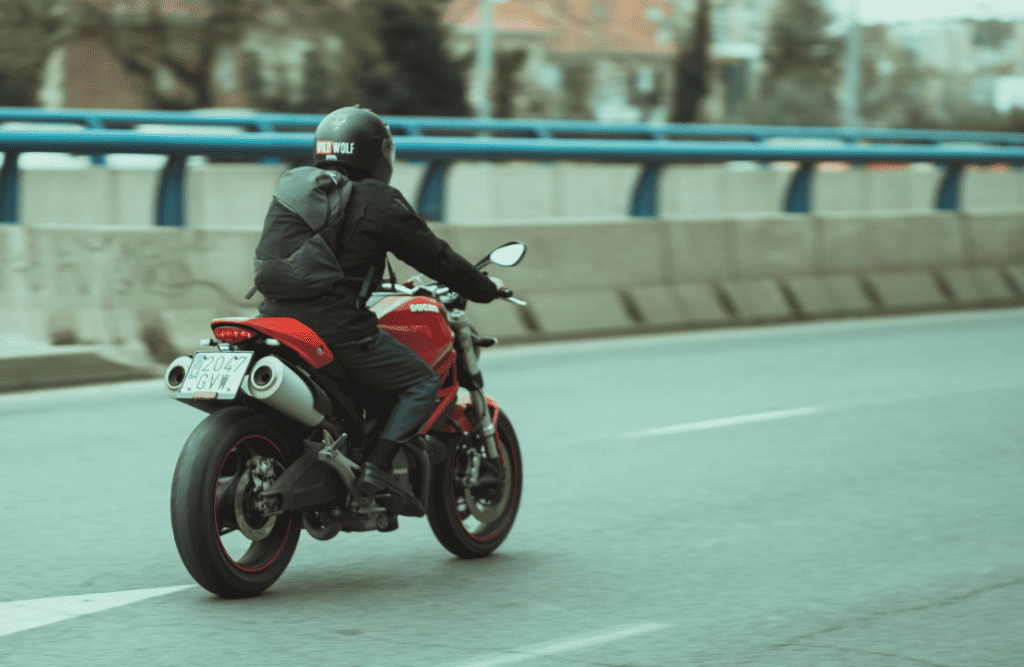
There are a lot of misconceptions out there about motorcycles. Motorcycles seem to be much different from other vehicles that drive on the road, so it makes sense that people often get confused with the laws of motorcycle riding.
Most people are aware that in order to operate a car legally, you need a license. The same rule applies to motorcycles as well since they’re considered motorized vehicles.
What happens if you ride a motorcycle without a license? If you ride a motorcycle without the appropriate license, you run the risk of receiving a fine and getting the motorcycle impounded at your expense. In extreme cases, depending on why you don’t have a license, you could possibly serve time in jail. Your insurance coverage may lapse if you cause an accident without a motorcycle license.
There are a lot of legal as well as safety issues associated with riding a motorcycle without having the appropriate license. This article can explain exactly what can happen when you ride without a license and what you should do to prevent these issues that could arise.
The Consequences Of Riding Without A License
Motorcycles are no exception to the rules and regulations of the road. Most people don’t understand that motorcycles are required to follow the same rules as cars despite the size difference and distinct ways you operate each type of vehicle. See my article here for more information about why motorcycles need to follow these same rules.
Unfortunately, there are some pretty major consequences that you can face if you ride a motorcycle without a license. First, let’s clear something up. Having a regular driver’s license does not make you eligible to ride a motorcycle. In order to ride a motorcycle legally, you will at least need to obtain a motorcycle permit.
If you get pulled over while riding a motorcycle without a license or permit, the police officer has the capability of giving you a large fine because it is classified as a misdemeanor. A fine like this can range between $100 – $1,000, depending on the officer and the reason you were pulled over in the first place.
Riding a motorcycle is a lot different than driving a car. People mistakenly assume that they’re the same. Though motorcycles are required to follow the same traffic laws, there’s a lot of additional aspects of riding you need to learn in order to safely operate a motorcycle.
That is the exact reason why getting a motorcycle license is required. There’s a lot of learning in the process and it isn’t something that everyone can simply do. If you’re riding a motorcycle without a motorcycle license or permit, chances are you don’t know the rules of how to ride one in the first place and are therefore posing a danger to the other drivers and pedestrians around you.
It is for this reason that a policeman has the capability to confiscate and impound a motorcycle at the owner’s expense. So not only will you have to pay for it to be towed to an impoundment lot, but you’ll also have to pay a fee to get it back.
If you don’t have a motorcycle license because it was suspended or revoked, the consequences are even more serious if you get caught. On top of paying fines and getting the motorcycle impounded, you could also serve some jail time for disregarding specific rules against your ability to operate a motorcycle.
You don’t have to be pulled over to face some of the consequences associated with riding a motorcycle without a license or a permit. In most states in the U.S., you need to have a valid motorcycle license or permit in order to get insurance on a motorcycle you own.
If you don’t have a motorcycle license or permit, chances are you don’t have insurance either. This can create a world of mess if a motorcyclist causes some sort of accident with their motorcycle. Causing an accident without a license and insurance can be extremely expensive.
Not only will you have your own motorcycle repairs and medical bills to pay for, but you’ll also likely have to pay a large fine for not having a motorcycle license or permit as well as pay for all damages and medical bills accrued by other parties since you were the cause of it.
This also means that if you don’t have the money to pay for all of the other party’s expenses, they can sue you and go after any assets you may have (house, car, savings account, etc.). A situation like this can easily cause bankruptcy. Essentially, no motorcycle license equals no insurance which equals higher risks for you.
On that same note, consider the insurance consequences if your motorcycle license was suspended or revoked. Even if you had insurance coverage before, most insurance companies will lapse if you let any of these things happen to your license and an accident happens because of your reckless driving.
If you cause an accident on your motorcycle while your license is suspended or revoked, in addition to paying a fine as well as paying for the other party’s expenses, you’ll likely serve jail time at a more severe level.
Please note, however, that if you are involved in an accident without a license that wasn’t your fault, you’ll likely not have as many consequences since you weren’t being the one who was reckless.
The Steps To Legally Ride A Motorcycle

The consequences can be heavy if you’re found riding a motorcycle without a motorcycle license or permit. It’s an unsafe practice anyway and should not be done for your safety as well as the safety of those around you while riding.
To avoid getting in trouble for not having a motorcycle license, you’ll need to take the steps to make it legal for you to be operating a motorcycle in the first place. The first step to that is getting a motorcycle permit from your local DMV. This is actually a relatively simple process and can be completed within an hour or two.
When you go to the DMV, you’ll need to provide proof of identity, proof of residency, and pay a fee. Next, you’ll take an eye test where you read letters on a board across the room to ensure you can see well enough to ride a motorcycle. Then you’ll take a written test that consists of about 25 questions or so to ensure you know the basic laws and rules of riding a motorcycle.
Once you have your motorcycle permit, you are free to ride a motorcycle. But a permit also holds a few restrictions such as not being able to ride at night, not riding with a passenger, etc. The purpose of the permit is to help you practice and get used to how a motorcycle works.
After you’ve had a motorcycle permit for a few months (or have ridden a certain amount of hours), you’ll then go back to the DMV and take a riding test in front of an instructor. This usually takes about a half hour or so. Once you pass the riding test, you’ll then be given a motorcycle license. See my other article here for more information about how to obtain a motorcycle license.
If you have a suspended motorcycle license, you will need to take the proper steps to getting it back such as taking a certain class or paying a fee. If your motorcycle license is revoked, you’ll need to go through the whole licensing process again through the approval of the DMV.
Riding a motorcycle is a privilege, not a right. There’s a reason people love riding a motorcycle so much, but it’s an allowance you get only when you take the proper steps to get to that point. Riding a motorcycle without a license will only set you back on your goals.
Exceptions
There is one exception to riding a motorcycle without having a motorcycle license. A lot of this depends on the state you live in, the type of motorcycle you’re riding, and the size of it’s engine.
CC’s on a motorcycle stands for cubic centimeters and indicates the capacity of the combustion cylinder. Basically, it’s talking about the size of the engine and how much power it has.
Generally, if your motorcycle, moped, or scooter is 49 CC’s or smaller, you do not need to acquire a motorcycle license to ride it on public roads. A regular driver’s license will suffice to operate one of these. Anything that is 50 CC’s or larger will require that you obtain a motorcycle license. Each state is different, so make sure you check with your state authorities to ensure you are following the laws of the road.
